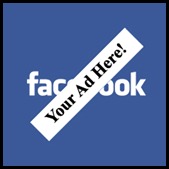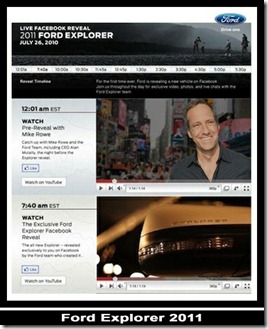 When the Cannes Lions were being announced earlier this month, one campaign made for a very interesting watch. Not only because it was a well planned and executed campaign, as you would expect from any shortlisted campaign, but also for a very different reason.
When the Cannes Lions were being announced earlier this month, one campaign made for a very interesting watch. Not only because it was a well planned and executed campaign, as you would expect from any shortlisted campaign, but also for a very different reason.
Dove Ad Makeover campaign was a mission in driving home the brand’s key message, ‘Be your beautiful self.’ The route it took was interestingly different. Using Facebook Advertising APIs, it allowed users to make ads and then place them on the network.
The user, mainly female audience, was invited to create ads that spoke about being happy with the shape and size that one was in and then used these user generated ads to replace all the ads that were targeting insecurities such as overweight, breast size and skin tone.
In order to do this, Dove went all out and doubled the ad bid for keywords used by the insecurity targeting ads. The campaign enabled women to flood Facebook with the positive messages that they had created. The campaign provoked a global debate, fundamentally challenging how advertisers use online media.
The campaign walked away with silver at Cannes, but more importantly left us wondering about the route brands should take – the route taken by Dove to invest heavily in Facebook ads or go the GM Motors USA way and pull out from it?
To give a brief idea about GM pull out, just before the Facebook IPO listing was due, GM withdrew $10 million worth of advertising revenue from Facebook. They stated that the ads were not working for them. Well, GM also stated that they may skip the super bowl, the biggest advertising platform in the American market. What one makes of it is something only GM can explain but one thing is for sure that GM is looking at every possible way of cutting it ad spends by $2 billion as it had stated. Facebook sadly could just be one of the channels to face the axe.
What also needs to be noted is that $10 million that GM pulled out was just a small amount from the $3 billion that it spends on overall advertising. In fact, GM spends $30 million alone of creating content and engagement on its Facebook pages.
So why would they say the ads were not working for them? Is it possible that they have not understood the idea of Facebook advertising for big brands?
This brings us back to the Dove campaign. Here is a brand that is ready to spend almost double of what its secondary competitors are spending on Facebook advertising to gain an advantage. And what drives them to doing this? Engagement.
Unlike GM, Dove is not looking to sell products through its campaigns. It wants to engage with its audience. It even wants to encourage co-creation of communication through its ad campaign. The platform was all about engagement and conversations. And Dove has just extended the same concept to its advertising on Facebook.
Quite possibly, GM has missed a trick. As great as it may be in its ad campaign on other platform, it seems they may have not understood the platform that is Facebook. And this in not just a plain statement. Compared to Ford, GM’s major competition, which has more than 10 million fans globally with 4 million supporting Mustang page alone, GM has just about 383,000 Likes with Chevrolet adding another 1.2 million.
 Like Dove, Ford to has managed its Facebook operation with engagement as its basic idea. Speaking to Brain Solis, Scott Monty Ford’s Global Digital Communications stated that “Ford is accelerating our efforts in Facebook and other social platforms. It’s all down to execution. We’ve found Facebook ads to be very effective when strategically combined with engagement, great content and innovative ways of storytelling, rather than treating them as a straight media buy.”
Like Dove, Ford to has managed its Facebook operation with engagement as its basic idea. Speaking to Brain Solis, Scott Monty Ford’s Global Digital Communications stated that “Ford is accelerating our efforts in Facebook and other social platforms. It’s all down to execution. We’ve found Facebook ads to be very effective when strategically combined with engagement, great content and innovative ways of storytelling, rather than treating them as a straight media buy.”
The ‘Reveal’ campaign that Ford ran for its Explorer 2011 model, outperform a traditional Super Bowl advertisement for a fraction of the cost. This only leads to believing that if the understanding of the platform is arrived at before the launch of a campaign, great things can be achieved. Read here how different types of Facebook advertising campaigns can be created.
Many would still debate if GM is right or wrong in doing what it did. What many might not be looking at is did GM base its Facebook campaign on its learning from other campaign? And if so, is that the right way to go?
What do you think about it? Do share your thoughts and opinions with us.
